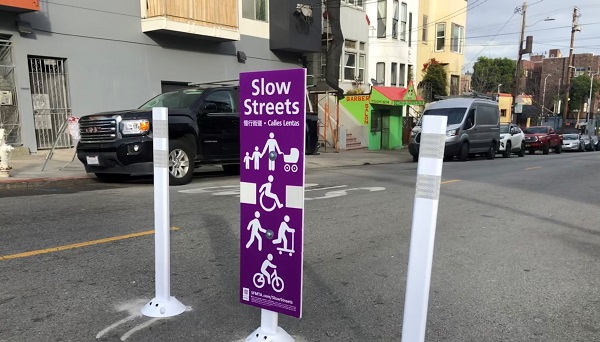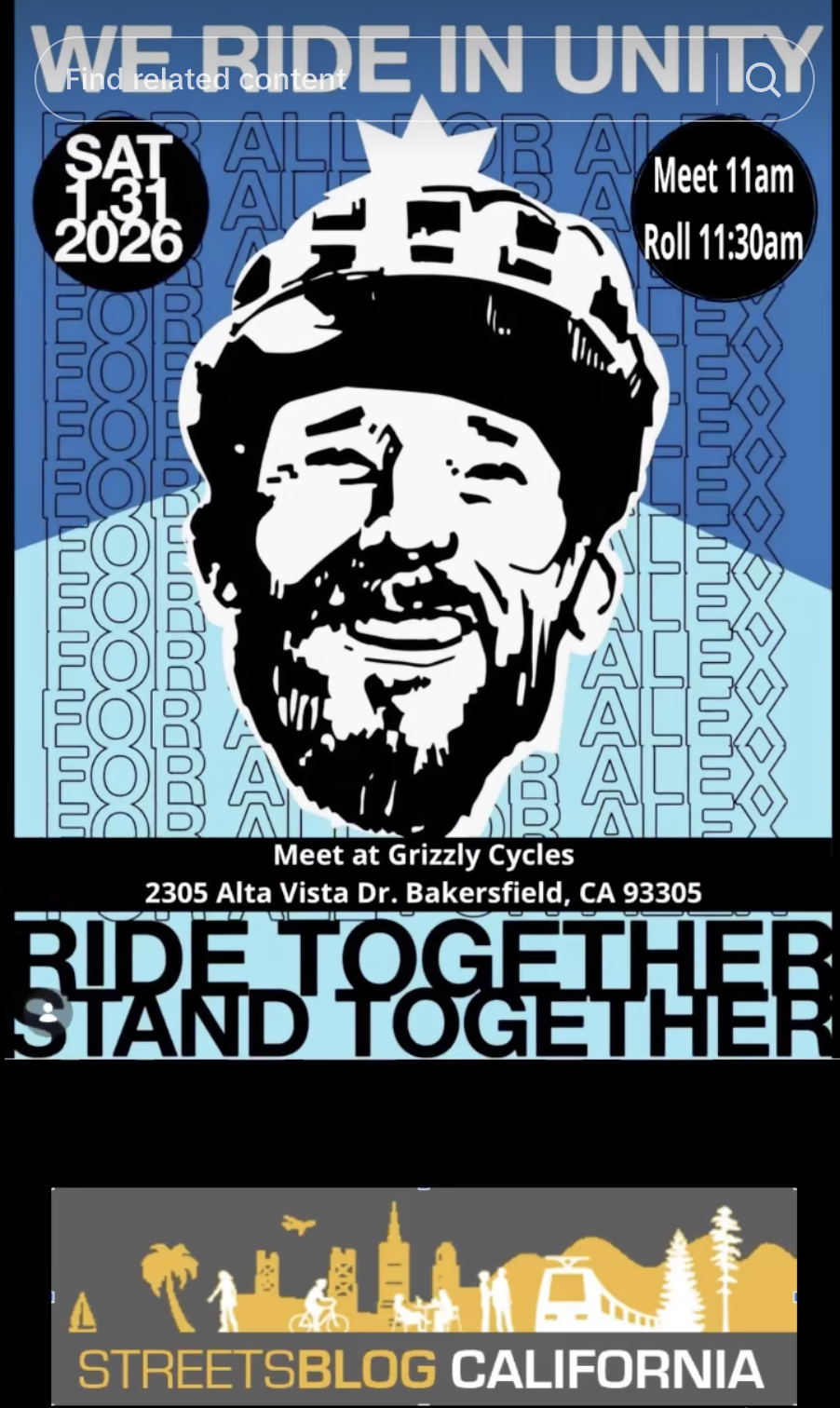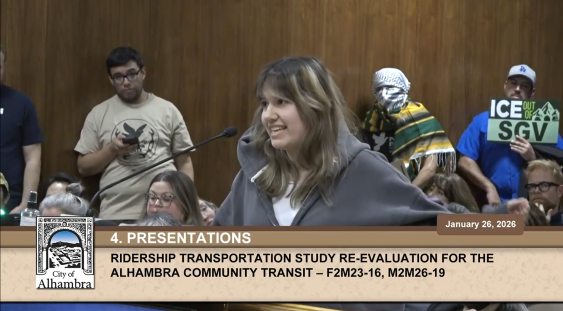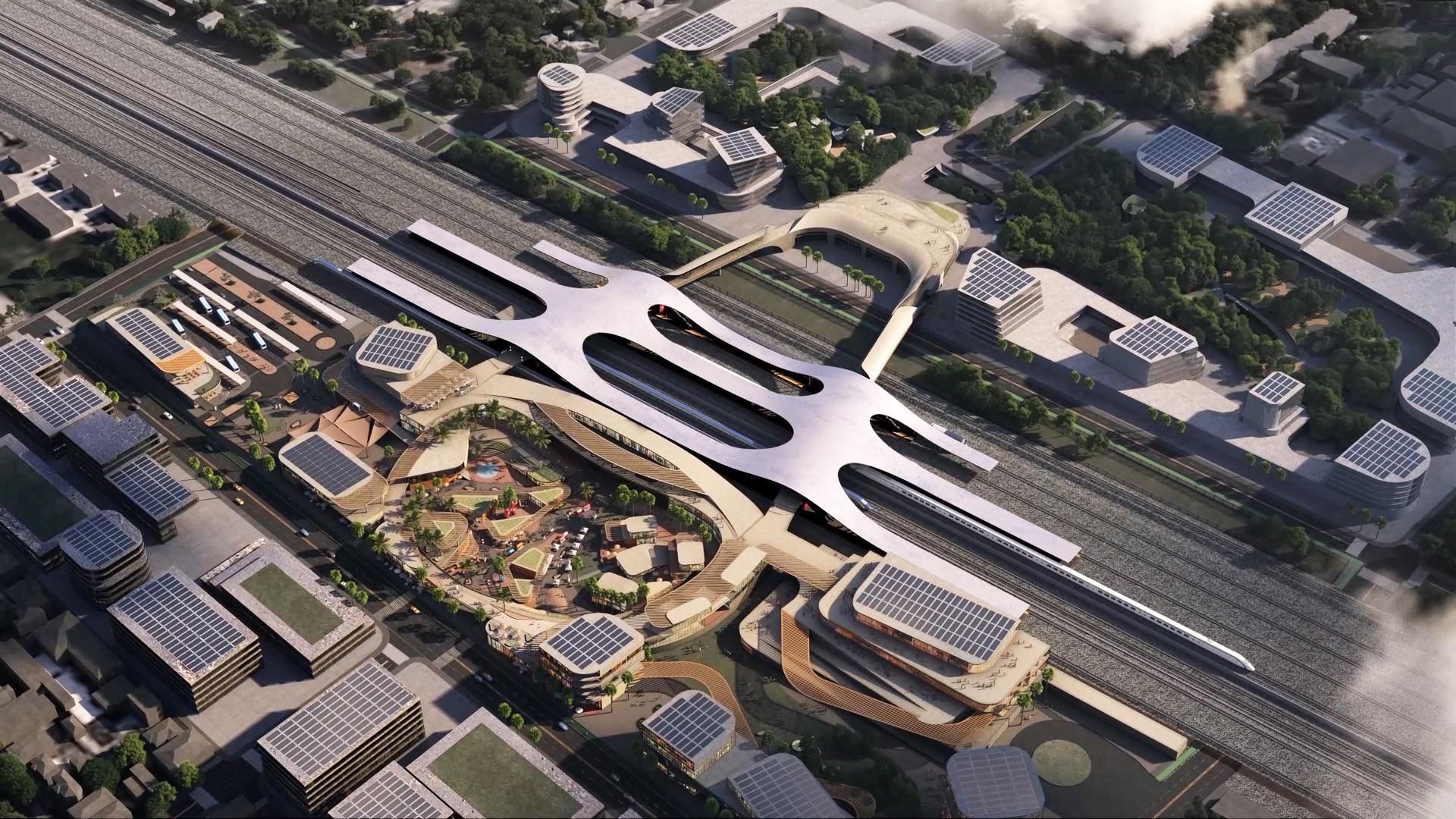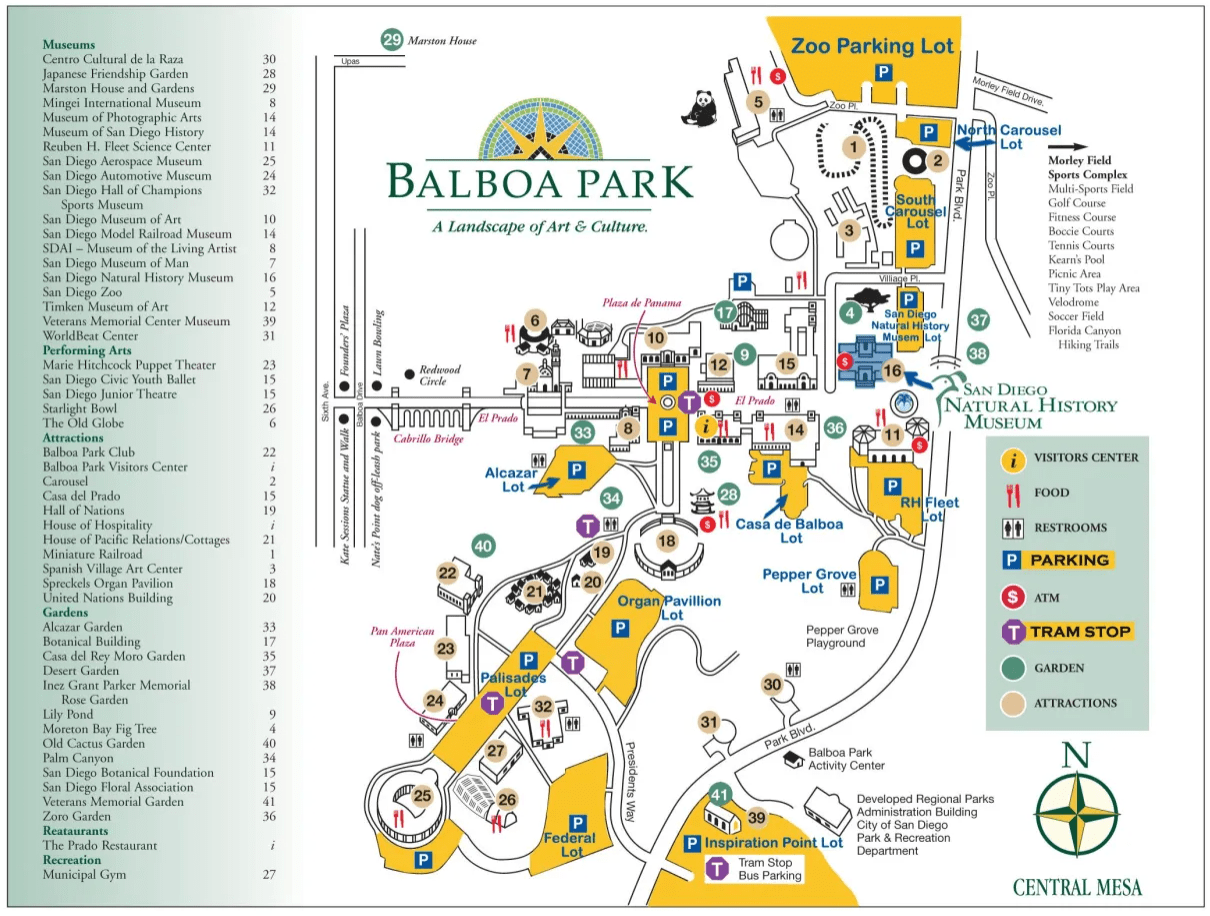Legislation introduced by Assemblymember Adrin Nazarian (D-LA) that would change state laws regarding street closures and speed limits on local streets is moving through the state legislature. The goal of AB 773 is to make it easier for cities to make the "Slow Streets" created during the COVID-19 pandemic permanent. The bill will be heard by the Assembly Committee on Local Government next Wednesday, May 5.
Last Spring, cities throughout California, from Sacramento to San Diego, have instituted local variations of Slow Streets programs. Barricades, some better than others, were erected on designated Slow Streets to slow traffic or prohibit cut-through traffic in order to create safe places for people to exercise, recreate, move or just be outside during the COVID crisis. As it appears that California is beginning to exit the crisis, many people that live on or near Slow Streets want the program to remain in place.
“Los Angeles’ Slow Streets program has offered children, families, and constituents throughout our city the opportunity to play, exercise, and socialize, safely, throughout their neighborhoods during the pandemic and should be expanded,” said Nazarian in a press statement when introducing the legislation.
"I am grateful to have spent quality time with my family this year utilizing the Slow Streets in our neighborhood and I am heartened to bring that opportunity to so many others."
The Los Angeles Department of Transportation (LADOT) has been reaching out to volunteers that have maintained the Slow Streets program about what can be done to make Slow Streets permanent on Los Angeles streets. During the initial rollout here, advocates for unsafe driving on local streets complained to the city that the Slow Streets program was a violation of CVC 21101 which prohibits cities from closing streets except when very specific criteria are met. LADOT responded by somewhat rolling back the program.
AB 773 would address that by making it easier for cities to lower speed limits and even do permanent closure of local streets if the closure would make streets safer for pedestrians, bicyclists, and other non-motorized road users. However, just because it will be legal to make a Slow Street permanent doesn't mean that current programs will automatically become permanent. Cities are promising a public process to identify appropriate Slow Streets projects to make permanent and which kinds of safety improvements to add to these streets. In larger cities, including San Francisco and Los Angeles, this process is already underway.
“Slow streets have become an indispensable part of our communities for the last year," writes Michael Schneider with Streets For All, a Los Angeles based non-profit that advocated for Slow Streets. "Assemblymember Nazarian’s bill will give Los Angeles even greater control and flexibility as we move towards making current slow streets permanent, and expanding the program even more.”
Currently, Slow Streets in Los Angeles have a plastic bollard, which may or may not have been partially destroyed by the weather or drivers, and a change to google maps as the ways that Slow Streets are protected. Other cities, including Oakland where the Slow Streets programmed was pioneered early in the pandemic, have more aggressive signage.
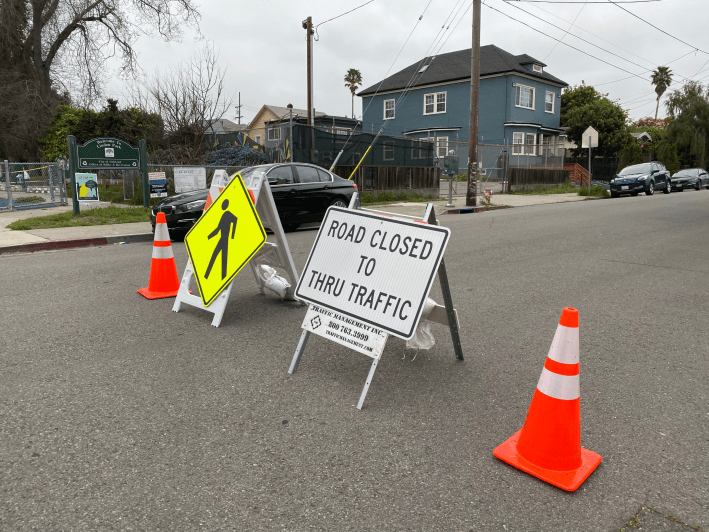
In San Francisco, the Slow Streets program is run by San Francisco Municipal Transit Authority (SFMTA or Muni). SFMTA has set up a website to explain the five-step process for what it is calling Permanent Slow Streets. They are currently in Step 3 - identify permanent Slow Streets - and will next move into an outreach phase with the impacted communities. In Oakland, the DOT announced in its regular assessment of Slow Streets that it would outline a plan to make long-term improvements along its Slow Streets areas. In Los Angeles, LADOT has reached out to Slow Streets volunteer coordinators to begin the public process in the densest Slow Streets neighborhoods.
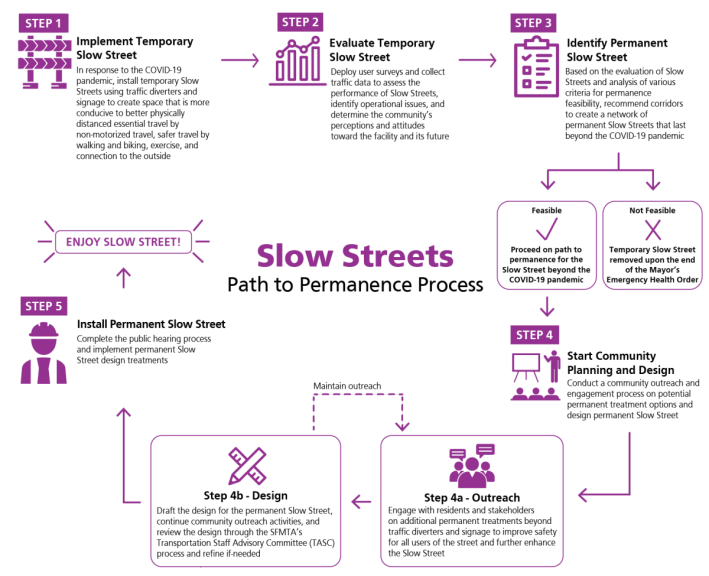
But for the cities that are hoping to turn quick projects into permanent neighborhood improvements, AB 733 can't come soon enough.
“COVID-19 has forced us to find creative ways to get outside and enjoy our communities while staying closer to home,” said supporter and Los Angeles Mayor Eric Garcetti.
“With Assemblymember Nazarian’s bill, we can keep our Slow Streets program intact and growing, enabling us to transform neighborhoods into accessible spaces and give people the space they need to engage in healthy recreation.”
Note: Damien Newton volunteers as a slow streets coordinator for Mar Vista Slow Streets in Los Angeles.
